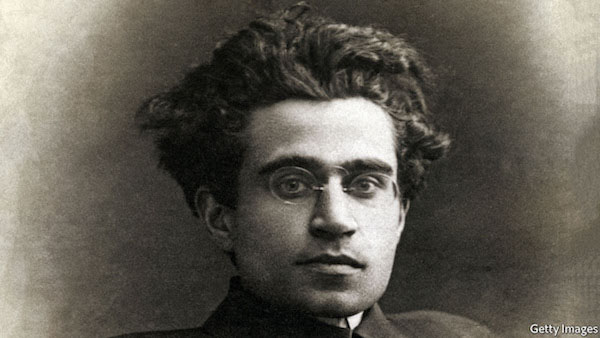
Although I have always been a man of the Right, some of the major influences on my thought have come from the classical Left. Many years ago, when I was being considered for the directorship of the National Endowment for the Humanities, Senator Jesse Helms, who ended up supporting my candidacy, asked his friend Sam Francis why I had written so often for Marxist publications. Sam answered: “He may be too conservative for conservative ones.” I made the same observation to a Marxist acquaintance to whom I loaned Sam’s posthumously published notes on managerialism, when they came out in the volume Leviathan and its Enemies in 2016. This acquaintance had asked whether the author, who examined the relationship of managerial government to the growth of global corporate capitalism, was a Marxist like himself. “No, he’s not. He’s on the far Right,” I responded. “But why don’t conservatives publish him? He’s really very smart,” my interlocutor continued. “Because he was too conservative” was my answer.
“Since identities are now plastic and provide the ontological counterparts of disposable consumer goods, they can be manipulated or changed whenever it pleases those in ‘democratic’ authority to do so.”
I was not being simply arch when I offered this response. All the Marxists, and a fortiori the recovering ones, I have known were far more conservative than the laughable carnival of imitators of the cultural Left who now elect to call themselves “conservatives.” Unlike Jonah Goldberg, Rich Lowry, John Podhoretz and the Fox News All Stars, my Marxist mentors and friends never celebrated gay marriage as a family value. They also never called for pulling down Confederate memorial statues and never assigned victim status to LGBT representatives. True, they were soft on Communist dictatorships, and I certainly argued with them on this point. Yet having witnessed the moral and cultural disintegration of the “democratic West” after the collapse of the Soviet empire, I cannot work up my old fervor for the Cold War anti-Communism of an earlier era. (I shall leave that to the neocons, with their characteristic enthusiasm.) I am now at the point that George Kennan reached when he saw seedy-looking war protesters blocking a street in Copenhagen in the 1970s. Kennan, who was a true man of the Right, happily imagined Soviet tanks rolling over these decadent youths. Needless to say, I would have no problem taking the side of the tanks in this imaginary confrontation.
Moreover, as I observe the culturally leftist politics of large corporations, I find it impossible to give even one cheer (let alone Irving Kristol’s “two cheers”) for capitalism. There is no morally subversive position, including support for infanticide and mandatory transgendered rest rooms, which our corporate boards will not energetically support. Likewise evil are the defense industries that payroll our fake conservative “think tanks” and nurture their eagerness to push the US into wars. Last year I examined in a commentary the incestuous relations between The American Heritage Foundation and Boeing and considered the likelihood at the time that Heritage’s next president would be a defense industry official. This connection was hardly accidental but entirely typical of the inseparability of war making and neoconservative foundations and publications.
At an earlier stage in our economic and cultural development it would have been possible for me to endorse capitalists who were running family enterprises and who represented traditional American Protestant morality. I still sympathize with the owners of Hobby Lobby and of other relatively small companies who are guided in their daily conduct and relations with employees by “biblical morality.” But I could not care less about what happens to the fortunes of Jeff Bezos, Howard Schultz, or those who sit on the boards of Citibank and Coca Cola and who promote “transgender rights” and gay exhibitionism. James Burnham once asked: “Who would give his life for the GNP?” I for one would not give even one minute of what remains of my life to keep our transnational capitalist elites in the lap of luxury. The only reason I would ever be on their side is that I fear the power of the central state even more than I dislike the beneficiaries of corporate wealth. Of course, most of the time they work in tandem.
During my years of attachment to a now vanished conservatism, I typically ignored corporate economic interests in explaining why political causes acted as they did. I was quite content attributing what I did not like to “bad ideas” and “ideology.” Although I would not dismiss such factors, it seems to me now that the desire for wealth and power have much more to do with who dominates whom than I once cared to notice. In reaching this perception, I have been guided not so much by avowed Marxists as I have by recovering ones: James Burnham, Will Herberg, Paul Piccone, Christopher Lasch, the Greek Germanophone political theorist Panajotis Kondylis, the onetime East German Marxist scholars, Peter Furth, and Frank Böckelmann. I have also learned a great deal from browsing through Antonio Gramsci’s Notebooks, which I recommend as a primer for the study of power relations. What has impressed me about all these scholars (except for Gramsci, who died a communist) is not the orthodox Marxism that they left behind, but what they took from it: an understanding of the social dynamics of global capitalism, the relationship between dominant classes and their worldviews, and the irreversibility of historical change. Political and social developments do not take place in a pendulum fashion. Whatever follows our late modernity, with its peculiar configuration of conditions, will not bring us back to anything that preceded it. The future will look different from the past because it is the radicalizing present that propels it.
Mass democracy under public administration is only possible when a certain level of material wealth permits the development of a consumer society and when markets and material “stuff” allow citizens to be reborn as consumers. Citizenship at this point does not depend on ethnic or ancestral ties. Anyone can become a citizen, providing he, she or whatever lies in between can buy and consume. All human relationships are characterized by hierarchies of material and acquisitive values. In practice, like the material world, identity is plastic or becomes whatever government or its media and academic priesthood decide to make it mean. Just like consumer goods under this dispensation, gender and race are inventions that can be exchanged like a car one has grown tired of. “Democratic” and “Republican” administrations succeed each other in the US, as purveyors of entitlements and other benefits that will increase acquisition and consumption for their competing voting blocks. The attainment of a certain level of affluence and the consumer power that it brings goes under the name of the “American Dream,” which is the mass democratic equivalent of Aristotle’s teleology. If in classical philosophy the highest form of human life lay in the full development of all human abilities, in American politics it has shrunk down to reserve resources of spending power.
This combination of mass democracy and consumption does not explain entirely one of the topics on which I have written at great length, namely, the cultural dominance of the post-Marxist Left. But it does underline a precondition without which a Left that only imitates Marxism would not have gained its present sway in First World countries. Since identities are now plastic and provide the ontological counterparts of disposable consumer goods, they can be manipulated or changed whenever it pleases those in “democratic” authority to do so. Here, of course, I am repeating the observation of onetime Marxists, who later turned decidedly to the Right.
Modern democracy features victimology as a public creed because it brings together two foundational principles of the regime: exchangeable and even disposable identities and the worship of equality. I first began moving toward a recognition of the first principle as a student of the self-described (somewhat eccentric) Marxist Herbert Marcuse. The one-dimensionality that Marcuse (and later Lasch) attributed to late capitalist societies characterizes the culture of consumption that is now extolled as “democratic capitalism.” Economic development, for better or worse, shapes the view that everything can be purchased and exchanged. Human successes and identities present themselves as market commodities that exist, or so we are told, to suit our needs. This furnishes a model of social control, in which subjects can be manipulated in return for being given access to comforts and amusements.
For me, this adaptation of Marxism explains how Political Correctness has become the unifying doctrine of the post-Christian, post-bourgeois West. Consumerism and the function of government in furnishing clients with ever greater resources for consumer choices have permitted what might otherwise seem humiliating circumstances for certain groups to prevail, with minimal protest. Indeed, for many white men, so long as they have disposable income and thus can enjoy new smartphones and other gadgets, it does not matter what feminists or racial minorities say about them. It does not matter that such supposed victim groups, along with the media and the government itself, demonize them rhetorically, treating them as the source of all prejudice and social injustice. In fact, these targets of abuse, like figures in a tragicomedy, are often pleased to go along with their worst detractors since equality, they have been told, is “who we are.”
This may answer a question that some members of the Alt-right have put to me: Why do white men submit to a political culture that demeans them? A partial answer is that they have undergone two forms of control. Their minds have been crammed full of egalitarian slogans and the politics of guilt in school, through the media, and even in churches. In recent years we have seen increasing discrimination against whites, and white men in particular—the controversy concerning Covington Catholic High School is but one of many examples. Still, many white men have not had to face the implications of their being unofficial scapegoats, for they are economically shielded and teeming with creature comforts—although, make no mistake, such conditions are not guaranteed to last.
The present situation is not foreign to the nature of the regime under which we all live. What distinguishes mass democracy is what Peter Furth describes as the “compromise” offered between free market capitalism and socialism. Mass democracy provides a mixed economy in which the desire for further equality is provisionally satisfied through the availability of consumer goods. Political Correctness becomes its dominant ideology because it pushes the ideal of compensatory equality. Although the social justice warriors constantly chatter about “structural inequality,” their primary effect has been to highlight racial, feminist, and LGBT grievances. Needless to say, when these activists also call for wild-eyed economic change, their capitalist friends—Howard Schultz, Michael Bloomberg, and the like—are quick to denounce them. With respect to the future, it will be interesting to see how men like Schultz and Bloomberg deal with the thorny contradictions that await them: They are only too happy to conform to the leveling cultural mores of their consumers; meanwhile, in response, those consumers grow only more insolent in their utopian economic demands.

